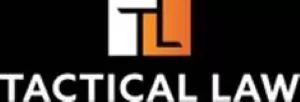- in United States
- with readers working within the Technology and Transport industries
- within Intellectual Property and Corporate/Commercial Law topic(s)
- with Finance and Tax Executives
The Northern District of California gave Facebook a partial win in a class action lawsuit brought under the Illinois Biometric Information Privacy Act ("BIPA"), when it granted partial summary judgment in Facebook's favor. Judge Donato in his ruling, cited the prior class action case In re Biometric Information and Privacy Litigation ("In re Facebook"), which he presided over and that ended in Facebook paying $650 million to settle the case. Unlike the previous case, Judge Donato reasoned that Plaintiff "does not have, and has never had, a Facebook account," and "has never used Facebook's services".
In Zellmer v. Facebook, the Plaintiff sued on behalf of a putative class of Illinois non-Facebook users, but who had been tagged in a photo by another Facebook customer. The functionality challenged in Zellmer involves Facebook's prior technology that allowed the scanning of faces in photographs uploaded on Facebook for association with other scanned faces to automatically tag users, their friends, and other recognized individuals. The court noted that as part of the In re Facebook settlement, Facebook had agreed to abandon such practices.
In granting summary judgment to Facebook on Zellmer's Section 15(b) claim under BIPA, which requires notice and consent, Judge Donato reasoned that Zellmer's interpretation of the statute would put an unreasonable burden on Facebook. Noting that the Illinois legislature's stated purpose in enacting BIPA was to apply the statute in situations where a business had at least some measure of knowing contact with and awareness of the people subject to biometric data collection, such as its customers, the Court declined to extend the rule further. According to the Court,
"To construe BIPA as Zellmer urges would lead to obvious and insoluble problems. Under Zellmer's interpretation of Section 15(b), Facebook in effect would need to identify every non-user in Illinois on a regular basis, and figure out a way to communicate with them to provide notice and obtain consent."
The Court found that such an interpretation would create an insurmountable practical problem "for the myriad of photos taken in restaurants, vacation destinations, school graduations, and countless other settings where unknown people will appear in a picture. There is no realistic way for the person posting the photo to obtain consent from every stranger whose face happened to be caught on camera."
The Court concluded that Zellmer's notice and consent claim under BIPA Section 15(b) would be unreasonable and would put Facebook in an impossible position. Construing the statute any other way would produce an absurd result and put an impossible burden on businesses, which was not the purpose of the statute or the intent of the Illinois Supreme Court in cases interpreting the statute.
Zellner also brought a claim under Section 15(a), which requires that businesses using biometric data have a publicly available written policy, which would set forth data retention policies and related practices. Facebook did not have such a policy but instead made a number of highly factually intensive arguments about whether or not it possessed biometric identifiers or information at all. For this claim, the Court found factual disputes that could not be ruled on in a motion for summary judgment. That claim will need to be tried.
The content of this article is intended to provide a general guide to the subject matter. Specialist advice should be sought about your specific circumstances.


